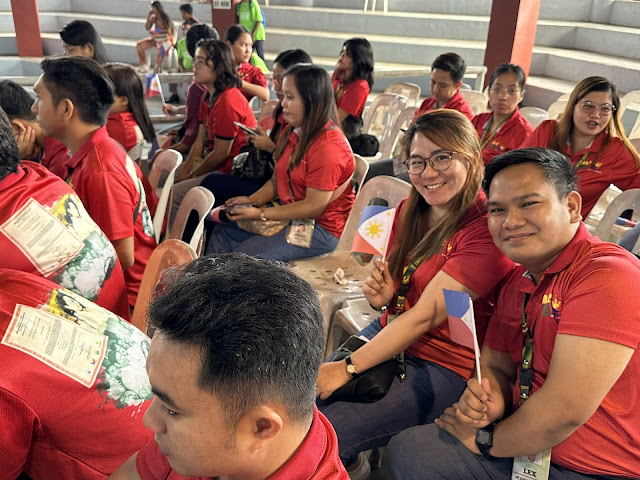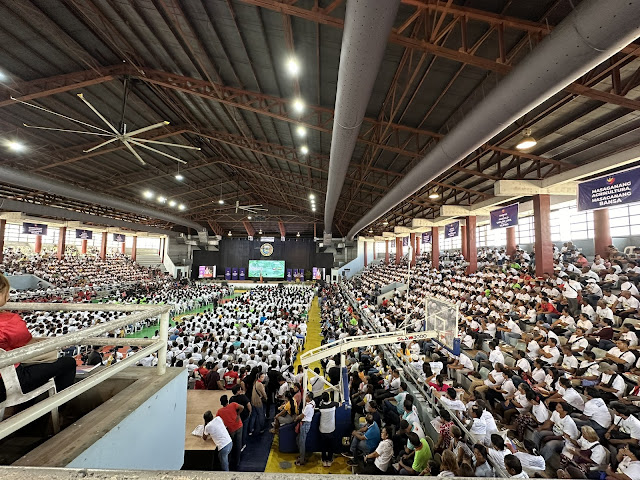The CoCROM is an official document issued to agrarian reform beneficiaries (ARBs) under Republic Act No. 11953, also known as the New Agrarian Emancipation Act.
Purpose of CoCROM: (1) It confirms the condonation (forgiveness) of all unpaid land amortizations, including principal, interests, penalties, and surcharges, incurred by ARBs; (2) It officially releases the mortgage on the land awarded to ARBs, giving them full ownership without financial obligations; (3) It allows farmers to focus on agricultural productivity without the burden of land-related debt. This certificate is being distributed across the Philippines, particularly in agrarian reform communities, as part of the government’s effort to support farmers and enhance the agricultural sector.
Reasons Behind RA 11953 (New Agrarian Emancipation Act). The New Agrarian Emancipation Act was signed into law on July 7, 2023, by President Ferdinand Marcos Jr. to provide financial relief and support to agrarian reform beneficiaries (ARBs). Here are the key reasons behind its enactment: (1) Debt Relief for Farmers - Many ARBs struggled to pay off land amortizations for lands awarded under agrarian reform programs. The law condones all unpaid amortizations, including principal, interest, penalties, and surcharges from land awarded under the Comprehensive Agrarian Reform Program (CARP) and other agrarian reform programs. This affects about 610,054 ARBs covering 1.173 million hectares, with a total of ₱57.56 billion in condoned debt; (2) Empowering Farmers for Agricultural Productivity - By removing the financial burden, farmers can now focus on improving their farms without worrying about unpaid amortizations. It encourages ARBs to invest in better farming technologies, increase crop production, and contribute more effectively to food security; (3) Economic Growth & Rural Development - The law supports sustainable agriculture by ensuring that farmers have secure land ownership without financial constraints. This move is expected to boost rural economies by increasing productivity and financial stability among farmers; (4) Continuation of Agrarian Reform Efforts - The law aligns with the government’s ongoing commitment to agrarian reform and social justice. It addresses longstanding issues related to land ownership, tenure security, and the economic challenges faced by ARBs. By enacting RA 11953, the government aims to uplift the lives of Filipino farmers, ensuring land ownership truly leads to agricultural success and rural prosperity.
The ceremony, held at the Josefina T. Albano Cultural Sports Complex, saw the distribution of over 25,000 CoCROMs, benefiting approximately 21,000 ARBs in Isabela. These certificates cover nearly 22,000 hectares of agricultural land, amounting to over ₱1 billion in condoned debts. President Marcos emphasized that with these certificates, farmers are relieved from the burden of land amortization payments, allowing them to focus solely on cultivating and enhancing their lands.
In addition to the CoCROMs, more than 450 Certificates of Land Ownership Award (CLOAs) were distributed to over 340 farmers, encompassing around 500 hectares of land in the province. This effort underscores the government's commitment to accelerating agrarian reform and providing tangible support to the agricultural sector.
President Marcos also urged farmers and fisherfolk to enroll in the Philippine Crop Insurance Corporation's programs. This initiative aims to safeguard their livelihoods against potential losses due to natural calamities, ensuring resilience and sustained productivity in the face of environmental challenges.
The event in Cabagan is part of a broader national effort to implement the New Agrarian Emancipation Act, which was signed into law in July 2023. The act aims to condone all loans, including interests, penalties, and surcharges, incurred by ARBs from land awarded under various agrarian reform programs. Nationwide, approximately 600,000 farmers are expected to benefit from this legislation, covering more than 1.7 million hectares of agrarian reform lands.
This landmark event signifies a substantial stride toward empowering
Filipino farmers, alleviating their financial burdens, and promoting
sustainable agricultural development across the nation.










